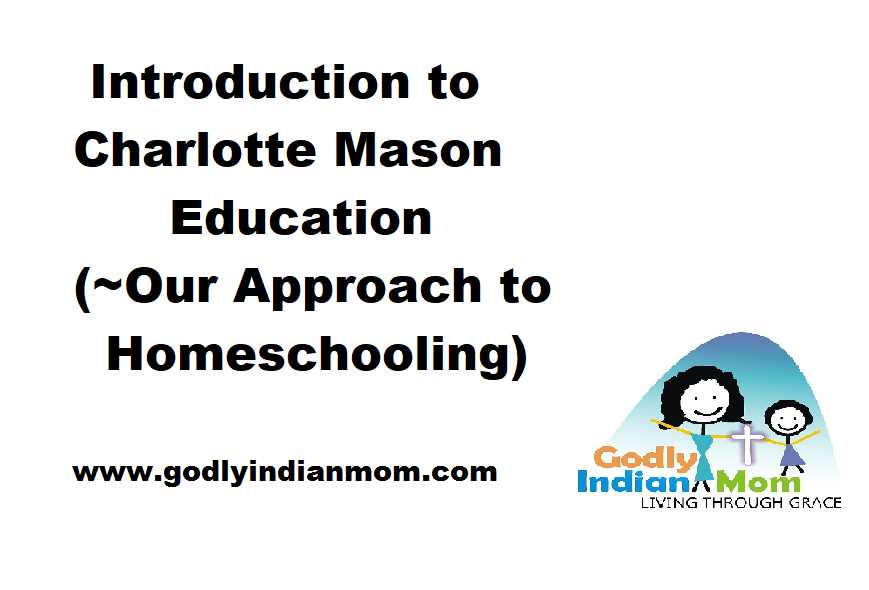Introduction to Charlotte Mason Education (~Our Approach to Homeschooling – India)

Hello everyone,
Today I will be sharing our approach to Homeschooling.
We are eclectic homeschoolers,however we largely lean towards the Charlotte Mason style of homeschooling.So today’s video is an introduction to Charlotte Mason education.
Click here to watch the video.
Charlotte Maria Shaw Mason (1 January 1842 – 16 January 1923) was a British educator in England.Her revolutionary method was to educate a child upon living ideas using living books.
What drew me towards Charlotte Mason?
* A Charlotte Mason approach inspires to spread a feast of education.So the child can savor each and every subject.
* Charlotte Mason approach leads to raising a whole child enjoying a full life.
* Her philosophy focuses highly on character training and humanities.
* Charlotte Mason approach deals with seeking knowledge for the sake of knowledge and not for rewards or results.
~Charlotte Mason believed that all children are born persons, and should be educated on real ideas, through their natural environment, the training of good habits and exposure to living ideas and concepts from the beginning

~ It inspires to make a connections in life naturally like making a connection with Jawahar lal Nehru through his book the Discovery of India,Or make a connection with wasps in our house through nature study.
Charlotte Mason approach inspires A natural learning process.
Charlotte Mason Home Education Series consists of Six volumes they are listed below:
Volume 1 – Home Education
Volume 2 – Parents and Children
Volume 3 – School Education
Volume 4 – Ourselves
Volume 5 – Formation of Character
Volume 6 – Towards A Philosophy of Education
You can find these insightful books as a free download-able online here, or get the free Kindle version from Fisher Academy.
The Motto of a CM Education as explained by Charlotte Mason :
“Education is an atmosphere, a discipline, and a life.”When we say that “education is an atmosphere,” we do not mean that a child should be isolated in what may be called a ‘child-environment’ especially adapted and prepared, but that we should take into account the educational value of his natural home atmosphere, both as regards persons and things, and should let him live freely among his proper conditions. It stultifies a child to bring down his world to the child’s level.By “education is a discipline,” we mean the discipline of habits, formed definitely and thoughtfully, whether habits of mind or body. Physiologists tell us of the adaptation of brain structures to habitual lines of thought, i.e., to our habits.In saying that “education is a life,” the need of intellectual and moral as well as of physical sustenance is implied. The mind feeds on ideas, and therefore children should have a generous curriculum.


